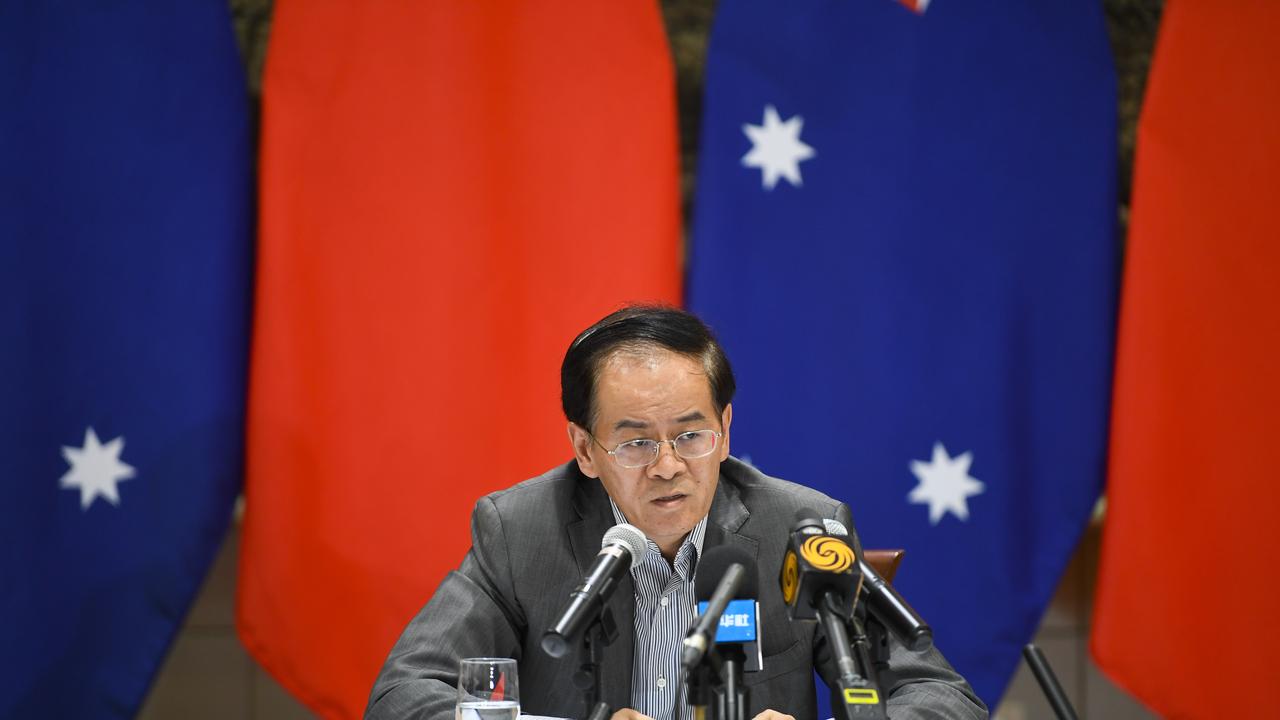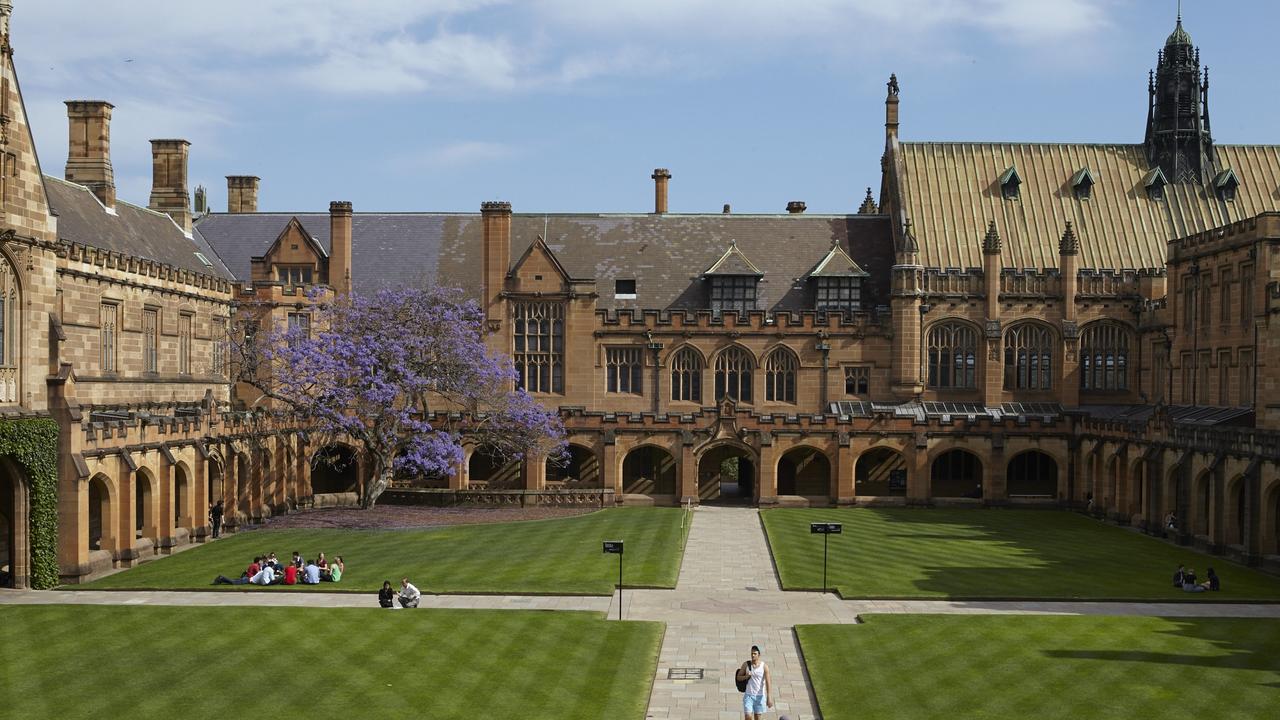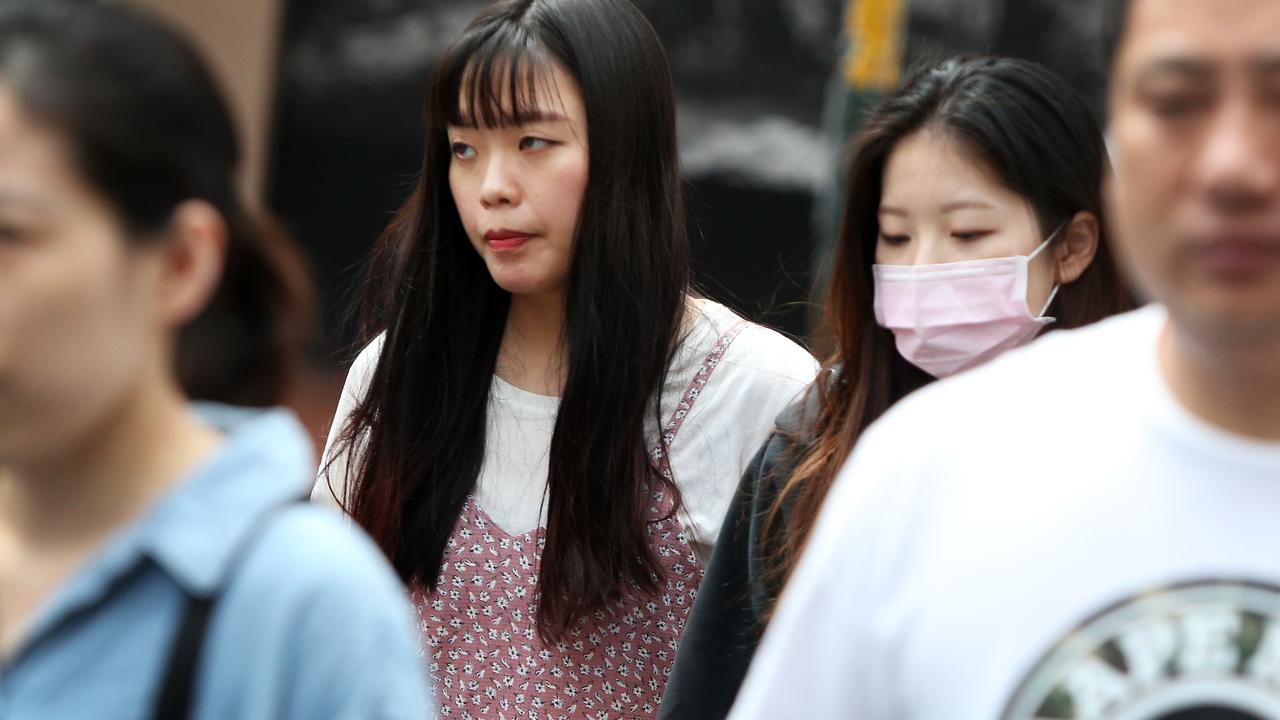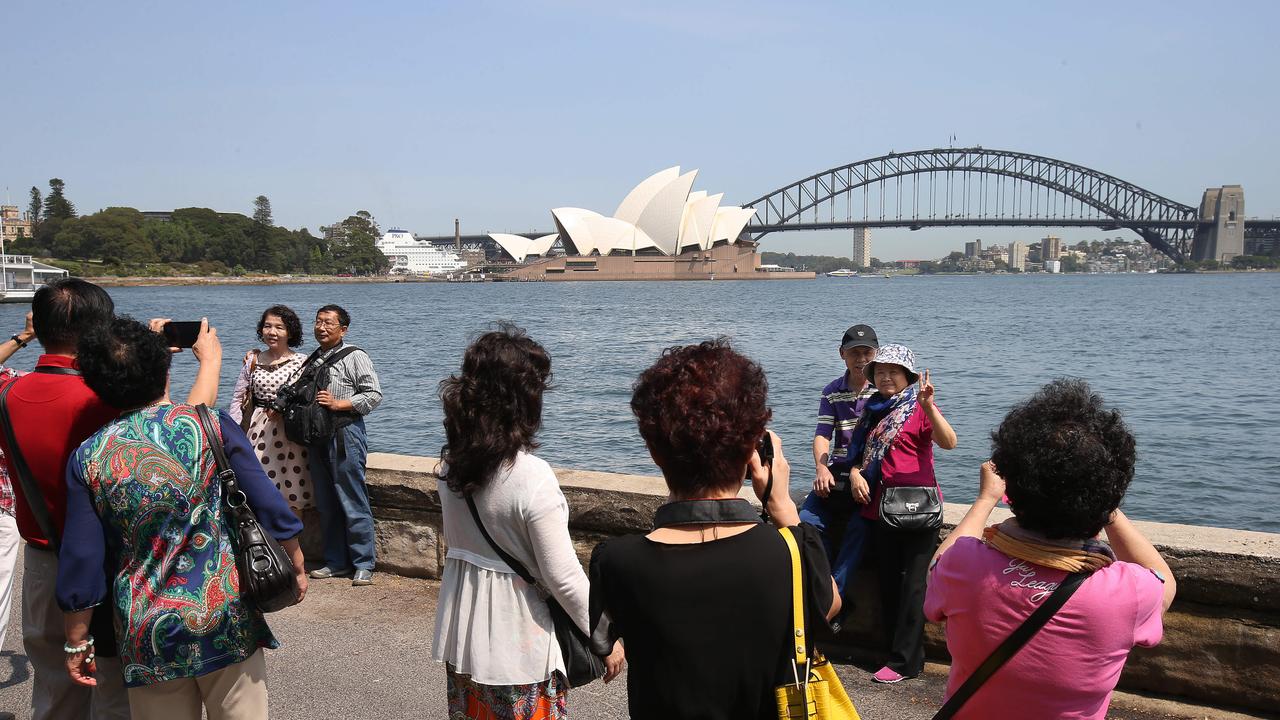Coronavirus: China boycott a threat to tourism and universities in Australia
There’s one industry Australia can’t afford to lose in a trade war with China. If they come for it, it will cost us billions in a huge downfall.
The Chinese government’s growing trade war with Canberra has stoked fear in Australian industries this past week.
Dairy producers have held emergency meetings with the Federal Government amid fears they could be targeted next, while wine producers have flagged they are also concerned.
But there’s another vital area the Chinese government has hinted at targeting: tourism and international student travel.
Australia first barred entry to foreign nationals travelling from mainland China on February 1 in a bid to stem the spread of the coronavirus pandemic.
The incoming travel ban was gradually extended to several countries that became virus hot spots, before borders were shut to all non-residents from March 21.
Australia’s tourism industry, already struggling after the bushfire disaster during key summer months, has paid a heavy price for the border bans, with some analysts estimating it is costing the sector as much as $2 billion a month.
‘THE TOURISTS MAY HAVE SECOND THOUGHTS’
A few weeks ago Cheng Jingye, the Chinese Ambassador to Australia, threatened that Chinese tourists – including students – may boycott coming to Australia, in what would be a massive blow to our economy.
Asked by the Australian Financial Review whether China would stop importing our commodities if we continued to pursue the COVID-19 inquiry, he said “tourists may have second thoughts”.
“The Chinese public is frustrated, dismayed and disappointed with what you are doing now,” Mr Cheng said. “In the long term, for example, I think if the mood is going from bad to worse, people would think why we should go to such a country while it's not so friendly to China. The tourists may have second thoughts.”

He went on to hint that university students – who contribute billions of dollars to our economy – might also boycott the country.
“Maybe the parents of the students would also think whether this place, which they find is not so friendly, even hostile, is the best place to send their kids to.
“So it's up to the public, the people to decide. And also, maybe the ordinary people will think why they should drink Australian wine or eat Australian beef. Why couldn't we do it differently?”
When pressed directly on whether this would mean a boycott of Australia, he said: “I don't know. I hope not. But if the mood is bad or even worse, I don't think it's helpful to everyone and as I said, I hope that the Australian side will do more positive things, which would serve the interests of both sides.”
JUST HOW MUCH DOES AUSTRALIA RELY ON CHINESE VISITORS?
Australia’s tourism industry is facing growing pressure to diversify to decrease its reliance on the Chinese market.
China is now Australia’s largest source of international visitors. According to Tourism Australia, there were 1.44 million Chinese visitors to Australia in the 12 months to November 2019.

Chinese travellers contributed roughly $12 billion to the Australian economy in that period – or 27 per cent of the total amount spent by all tourists.
Data also shows they contribute more to the Australian economy on an individual basis. The average spend per Chinese trip was $A9,235. This compared with $5,219 for Americans, $4,614 for Japanese and $2,032 for New Zealanders.
This is largely due to the number of Chinese students who study at Australian universities. Around 20 per cent of Chinese tourists visit for educational purposes.
These students spend an average of $27,000 in the space of about four months, contributing more than $10 billion to our economy.

Executive Director at the Australian Strategic Policy Institute Peter Jennings told news.com.au we’ve allowed our economy to become too reliant on the one-party state.
“What’s clearly emerging now is that China does not behave like capitalist economies,” he said. “We hoped it would behave like one when it went into the World Trade Organisation, but at its heart, we’ve got a one-party state that is prepared to use economic connections for political purposes.
“We’ve denied it for years, but we’ve allowed ourselves to become very dependent on economic connections. I think it’s enormously serious. We will be able to work our way through it through a combination of building other markets, but that’s going to take years and won’t be easy.
“We also need China to understand it cannot coerce the Australian government. We’ve got red lines that they can’t interfere with. We need to get them to a point where they accept that that’s how things will work.”
He said Australia should spend the next few years leaning into new and under-utilised markets, such as Latin America, Africa and South-East Asia.
COULD CHINA BOYCOTT TRAVEL TO AUSTRALIA?
Every Chinese tourist who leaves the country for an overseas holiday needs permission from its government. The Chinese Communist Party controls every aspect of society and can, in theory, switch travel off at the drop of a hat.
In this case, all it would really need to do is ban Australia as a tourist destination and refuse to give visas to citizens who want to come here.
But Mr Jennings says it’s not as easy as that – because, simply put, Chinese travellers love Australia.
“I don’t think it’s as easy for them as people imagine. In one sense it’s true that they can just stop visas overnight and say Australia is not a tourist destination, but the risk they run by doing it is that they annoy a large number of their own people,” he said.
“When Chinese people come here as tourists, it’s because they like Australia. Even if the Chinese Communist Party doesn’t like us, the average Chinese person does. Students come here because it’s clean and green, they think they will get a good education, it’s not as expensive as the UK or US and is relatively safe.
“The party is very sensitive to its own people. They could make that choice, but it would come at a cost.”

That said, it wouldn’t be the first time China has enforced travel prohibitions to make a political statement.
In 2017, China objected when South Korea deployed a US-made antimissile system to protect itself from North Korea.
The machine, known as Terminal High Altitude Area Defense (THAAD), was deemed by the Chinese government to be a threat to its national security.
When Seoul refused to back down on the use of the system, Beijing curbed travel to South Korea.
The move cost the Korean economy $AU10.5 billion – a move from which the country still hasn’t recovered.
The Chinese government has also previously threatened to dissuade its citizens from coming to Australia.
In 2018, during a period of high tension between the two governments, China’s embassy in Canberra issued a safety warning after what it claimed was a surge in “insulting incidents” directed at Chinese students living here, to dissuade its citizens from coming here.
In 2017, the embassy posted a message to its website warning of “a rising number of insulting incidents” and urged students to report any safety problems.
CHINA CONTINUES TO DENY POLITICAL MOTIVATIONS
The Chinese government has denied it is punishing Australia over the COVID-19 inquiry, despite repeatedly warning that pursuing the inquiry could damage our relationship.
Shortly after Mr Cheng’s interview was published, China’s Global Times newspaper said Western media had overhyped claims of "economic coercion", noting he had stated he hoped there would be no economic consequences for Australia.
They also continue to dodge the question of whether this week’s trade restrictions were politically motivated.
China’s Ministry of Foreign Affairs spokesman Zhao Lijian said the trade strikes on abattoirs, which were first reported on Tuesday, were due to quarantine and custom standards violations as opposed to the country’s fury with Canberra over a COVID-19 inquiry.
“As to the Australian-launched inquiry into the virus, as is known by all, the origin of the virus requires the assessment of specialists and scientists,” Mr Zhao said on Tuesday night.
“Using the virus for political manoeuvre will only disrupt the epidemic co-operation. This will only be an unpopular move. China always believes that mutual respect and equality should be the basis for the development of bilateral relations,” he said.
“Mutual respect should be the basis of good relations.”
On the Federal Government’s approach, Mr Jennings said they’re doing the right thing. “We’re being calm and measured,” he said. “The government will never get rewarded by having shouting fights with China.”
He also stressed that the inquiry into COVID-19 must continue.
“We now have over 300,000 people dead around the world. We’re about to be plunged into what I think will be a depression worse than the Great Depression.
“If not this, then when would we press China hard? We shouldn’t be complicit in the Communist Party’s actions.”



